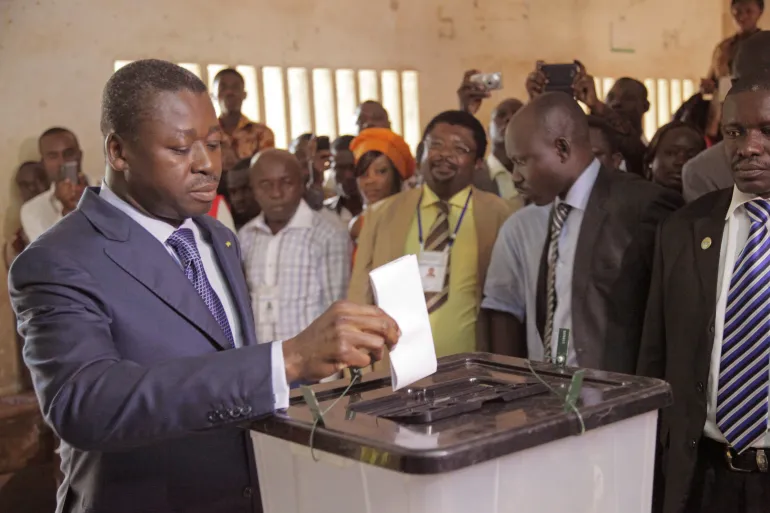Togo is holding high-stakes local elections under a new constitution amid lingering tension from deadly protests that erupted weeks earlier over sweeping reforms seen as tightening President Faure Gnassingbé’s grip on power.
On Thursday, July 17, voters are at the polls to elect leaders across the country’s 117 municipalities. But the atmosphere is anything but calm. Security forces were deployed heavily, and land borders sealed off, signaling the state’s intent to avoid a repeat of the June protests that claimed at least seven lives.
The unrest began when Togolese rapper and TikToker Tchala Essowe Narcisse, widely known as Aamron, was arrested for releasing a video urging demonstrations on President Gnassingbé’s birthday. His detention touched off a surge of anger, particularly among young citizens already frustrated by economic hardship and the newly passed constitutional reforms.
In the weeks following Aamron’s arrest, thousands poured into the streets of the capital, Lomé. Protesters blocked roads, built barricades, and hurled stones at security personnel, who retaliated with tear gas. The clashes left a trail of destruction and death, including minors whose bodies were later found in lagoons and lakes around the capital. While a government statement attributed the deaths to drowning during the rainy season, human rights organisations have contested that account.
Protesters Slam “Constitutional Coup”
The demonstrations were not just about one artist’s arrest. At the heart of the anger was the constitutional amendment pushed through Parliament in April 2024 by the ruling Union pour la République (UNIR) party. This change officially shifted Togo from a presidential system to a parliamentary one, but with a twist.
The amendment also created a new role: the President of the Council of Ministers. The position, critics argue, wields unchecked power and conveniently allowed President Gnassingbé to transition into the new role while naming an aging political figurehead as president. Opposition leaders and civil society groups have called the move a “constitutional coup.”
On May 3, President Gnassingbé was formally sworn into the new executive office. Meanwhile, Jean-Lucien Savi de Tové, 86, became the official president, Togo’s oldest ever, raising further concerns that the real reins of power remain firmly in Gnassingbé’s hands.

Togo, officially a democracy, continues to function like a militarised state. Armed gendarmes dominate the streets of Lomé and other urban areas, frequently accused of suppressing dissent through violence, arrests, and intimidation. The June protests brought these issues back into the spotlight, especially with reports from the Le Front Citoyen Togo Debout coalition, which documented arbitrary arrests, physical beatings, and the destruction of property.
Among the victims were two minors, whose deaths sparked outrage. The coalition demanded an independent investigation, supported by the “Don’t Touch My Constitution” movement. Togo’s Catholic Bishops added their voice to the condemnation, describing the state violence as “unacceptable and unjustified.”
While the municipal elections are meant to demonstrate democratic progress, many citizens view them as cosmetic. Thursday’s vote is the first under the new constitutional structure, and turnout remained unclear amid public skepticism and fear. Opposition voices warn that the changes have merely extended the grip of a ruling family that has held power for over five decades.
Gnassingbé, who assumed office in 2005 after the death of his father, has weathered multiple waves of protests in his two-decade rule. Between 2017 and 2018, massive crowds rallied behind slogans like “Faure Must Go” and “Togo Stands Up.” Those movements were forcefully repressed, with the government banning public protests on the grounds of security.
The current wave of discontent, however, appears more coordinated and intergenerational, driven not only by civil society but by a rising youth demographic with digital platforms and international attention.
READ ALSO: Govt’s Move to Seize Unregistered Mining Equipment, Game Changer in Galamsey Fight




















